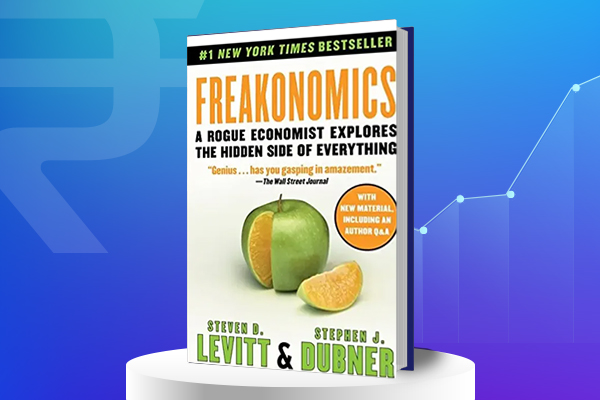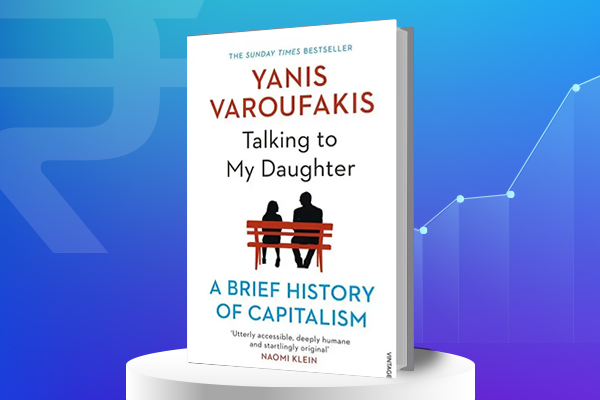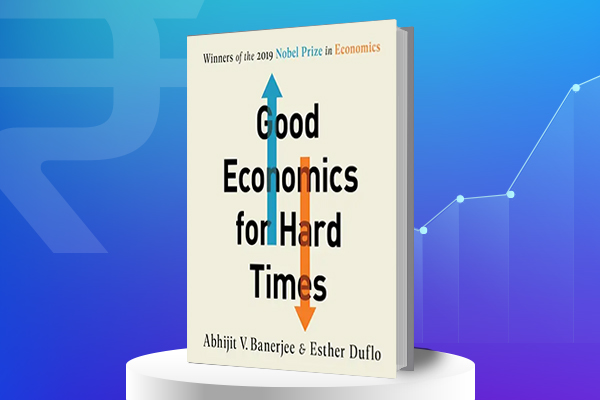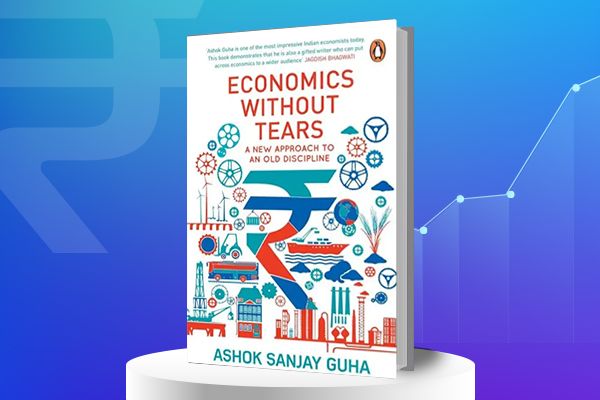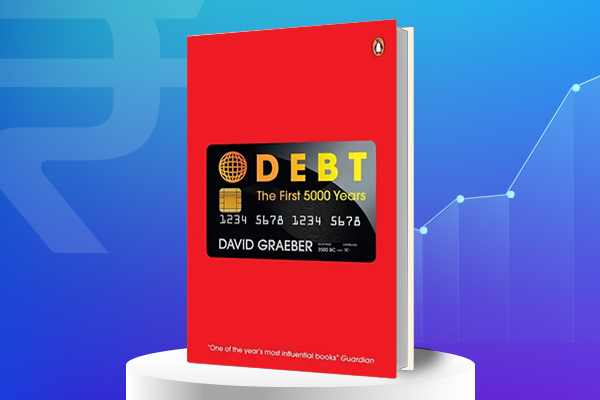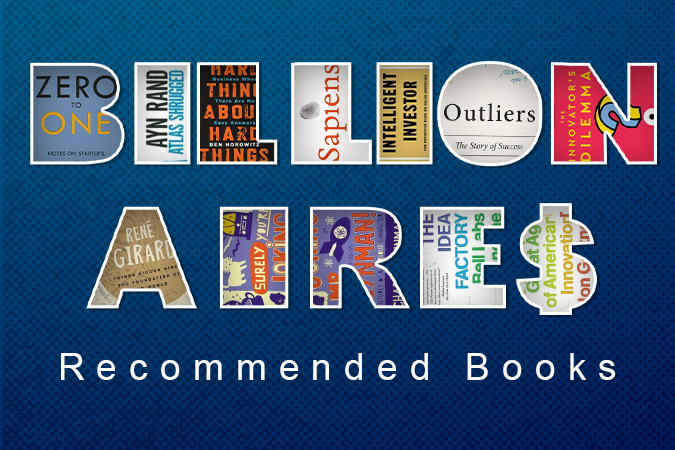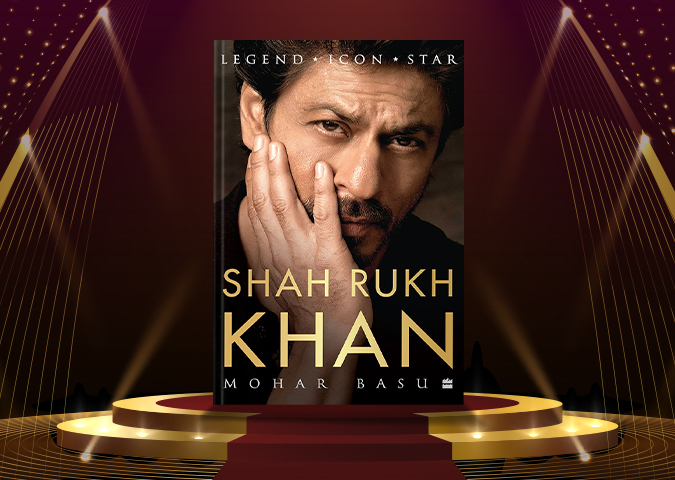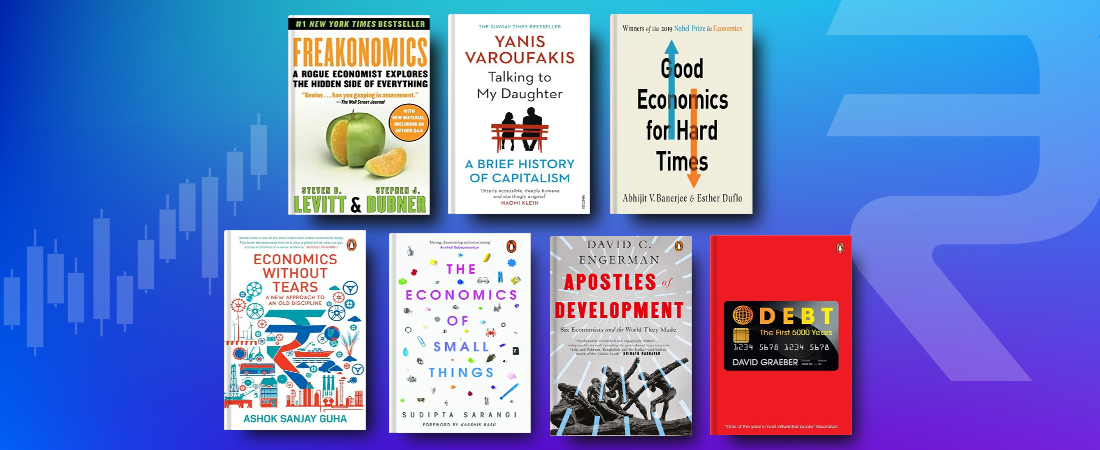
Economics is a term we hear every day. We assume it’s complex and meant for experts, but it actually shapes everything around us. From the price of milk and bus fares to job markets and inflation, economics quietly drives our daily choices. If you’re wondering how, this article features a recommendation of the best economics books that simplify the subject, showing how it connects to our lives and decisions.
Whether you’re a student, a professional, or just a curious reader, these titles offer approachable lessons on money, behaviour, and society through storytelling and practical insight.
Let’s look at what economics really means, why it’s useful for everyone, and which economics books can help you learn at your own pace.
Understanding Economics
At its heart, economics is the study of how people make choices with limited resources: money, time, energy, or goods. It’s not just about GDP or stock markets; it’s about why we buy what we buy, how businesses set prices, and why governments frame certain policies. Understanding basic economic principles helps us see patterns behind consumer trends, job shifts, and even social behaviour.
Knowing a bit of economics doesn’t require a degree. It sharpens your awareness of the world, makes news stories easier to decode, and even helps with personal finance. And the best way to start? Books that explain economics in relatable, story-driven ways.
How Books Make Economics Simple
The best economics books break down tough theories into real stories, case studies, and examples from everyday life. They show how incentives shape behaviour, how trade influences prosperity, and why markets rise or fall. The beauty of learning through books is that you can move at your own pace, absorbing insights that stay with you long after you’ve turned the final page.
Here are some of the most insightful and beginner-friendly titles to start your journey.
One of the most entertaining introductions to economics, Freakonomics explores how hidden incentives shape human behaviour. The book features six essays covering topics such as cheating, parenting, drug dealing, and even baby names, each one connecting moral questions to market logic. Each chapter uses real-world scenarios like why sumo wrestlers cheat or how real estate agents influence markets, to reveal how economic principles explain everyday choices. It’s witty, surprising, and deeply readable.
Takeaway: Economics is everywhere, even in the quirkiest corners of life.
One of the most entertaining introductions to economics, Freakonomics explores how hidden incentives shape human behaviour. The book features six essays covering topics such as cheating, parenting, drug dealing, and even baby names, each one connecting moral questions to market logic. Each chapter uses real-world scenarios like why sumo wrestlers cheat or how real estate agents influence markets, to reveal how economic principles explain everyday choices. It’s witty, surprising, and deeply readable.
Takeaway: A warm and accessible crash course in understanding how the global economy affects ordinary lives.
Two Nobel Prize-winning economists explore the toughest challenges of our time: inequality, climate change, migration, and more. With data-driven insights and witty storytelling, the book tackles myths around globalisation, trade, and welfare, offering evidence-based solutions to modern policy debates. The book is both smart and human, showing how data-backed reasoning can lead to better public policies.
Takeaway: Brilliantly written insights on how empathy and evidence can guide economic progress.
This book turns daily observations into bite-sized lessons in economics. Why are all the good mangoes exported? Why don’t we grab the last piece of cake? Through similar questions, Dr. Sarangi connects everyday behaviour to economic reasoning. Each chapter uses examples from social media trends to household habits to explain theories like game theory, incentives, and behavioural bias in easy-to-grasp ways.
Takeaway: Economics made fun, Indian, and instantly relatable. Perfect for beginners.
Forget jargon and complex graphs; this book takes you through the foundations of economic theory with clarity and humour. Ashok Sanjay Guha introduces concepts like demand, markets, and value using anecdotes instead of equations. The chapters cover fundamental principles like opportunity cost, competition, and efficiency through stories that make learning feel like conversation rather than coursework.
Takeaway: Ideal for anyone who wants to understand economics from scratch, minus the math anxiety.
For readers who want to go deeper, this book traces the story of six economists, including Amartya Sen and Manmohan Singh, who shaped development thinking in the Global South. Engerman explores how their ideas helped fight poverty and reshape policies across nations. The book delves into Cold War-era development debates, showing how these thinkers balanced ideology with pragmatic action in newly independent countries.
Takeaway: A fascinating look at the people and philosophies that built modern development economics.
Part history, part anthropology, Debt reimagines the story of money itself. David Graeber explores how debt – long before coins or credit cards – defined relationships and power. The book spans ancient Mesopotamia to modern capitalism, revealing how credit systems, morality, and politics evolved together through centuries of exchange. It’s a sweeping, thought-provoking read that challenges what we think we know about economics.
Takeaway: Money is more than numbers; it’s a social story of trust, obligation, and control.
Why You Should Read Economics Books
You don’t need to be an economist to benefit from understanding how economies work. These books demystify the subject, connect it to daily life, and help readers see how choices – both personal or political – shape the world.
Reading suggestion:
- Start with: The Economics of Small Things or Economics Without Tears for beginners.
- Go deeper with: Good Economics for Hard Times and Apostles of Development.
- Challenge your thinking: Freakonomics and Debt: The First 5000 Years.
Each one offers a different lens, but together, they prove that economics isn’t dry or distant. It’s the story of us all.
FAQs
Which economics book is best for beginners?
For beginners, The Economics of Small Things by Sudipta Sarangi and Economics Without Tears by Ashok Sanjay Guha are ideal. They explain core economic ideas using everyday examples, without technical jargon or complex theory.
How can economics books help with personal finance?
Economics books help you understand inflation, incentives, pricing, and decision-making. This knowledge improves everyday choices related to saving, spending, budgeting, and understanding market trends.
How do I choose the right economics book to read first?
Choose based on your interest:
- For storytelling and surprising insights: Freakonomics
- For simple, everyday examples: The Economics of Small Things
- For global issues and policy: Good Economics for Hard Times
Starting with an engaging book makes learning easier.
Are there economics books that explain real-world applications simply?
Yes. Books like Freakonomics, The Economics of Small Things, and Economics Without Tears focus on real-world situations such as consumer behaviour, pricing, and everyday decision-making.
How should a beginner start learning economics?
Beginners should start with non-technical books, focus on real examples rather than theory, and learn at their own pace. Story-driven economics books are more effective than textbooks for first-time readers.
Which economics book helps understand how economies work today?
Good Economics for Hard Times is one of the best books for understanding modern economic challenges like inequality, migration, and globalisation, using evidence-based analysis and clear explanations.

